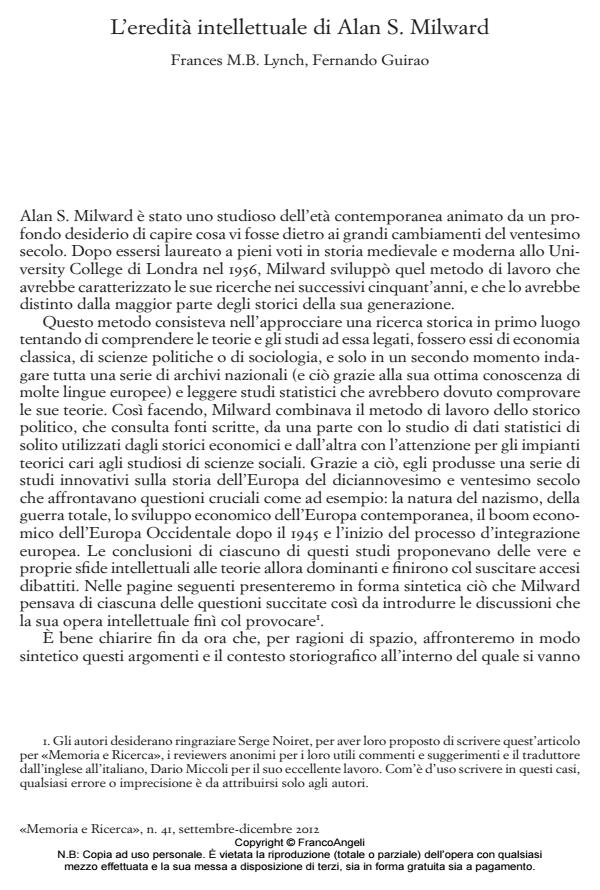The intellectual legacy of Alan S. Milward
Journal title MEMORIA E RICERCA
Author/s Frances M.B. Lynch, Fernando Guirao
Publishing Year 2013 Issue 2012/41
Language Italian Pages 26 P. 181-206 File size 152 KB
DOI 10.3280/MER2012-041011
DOI is like a bar code for intellectual property: to have more infomation
click here
Below, you can see the article first page
If you want to buy this article in PDF format, you can do it, following the instructions to buy download credits

FrancoAngeli is member of Publishers International Linking Association, Inc (PILA), a not-for-profit association which run the CrossRef service enabling links to and from online scholarly content.
Alan S. Milward was a contemporary historian who combined the political historian’s method of consulting the written record with the economic historian’s use of statistical data and the social scientist’s preference for general theory. On the strength of the resulting research methodology he produced a series of original histories of Nineteenth and Twentieth century Europe which tackled the big historical issues of his time: the nature of Nazism; of total war; of economic development in Nineteenth and Twentieth century Europe; and the reasons for the sustained economic boom in western Europe after 1945 and for the origins of European integration. In so far as his conclusions on each separate theme challenged the dominant theories, they stimulated considerable debate. Indeed, his implicit theories of historical change and European integration continue to resonate in the current political and economic crises facing Europe. Unlike neo-classical economists, European federalists and many integration theorists, Milward argued that economic and monetary union would not necessarily lead to a democratic political union in Europe and the end of nation-state. Indeed he predicted in 2000 that if the European Monetary Union was beset by asymmetric shocks, it would weaken progressively until its desired effect had been so reduced as to defeat the Union’s original purpose. As we live through such asymmetric shocks, Milward’s predictions seem to carry more force than any of teleological theories of European integration.
Keywords: Alan S. Milward, Economic growth, European integration, Nazi Germany, Second World War, War economy
Frances M.B. Lynch, Fernando Guirao, L’eredità intellettuale di Alan S. Milward in "MEMORIA E RICERCA " 41/2012, pp 181-206, DOI: 10.3280/MER2012-041011